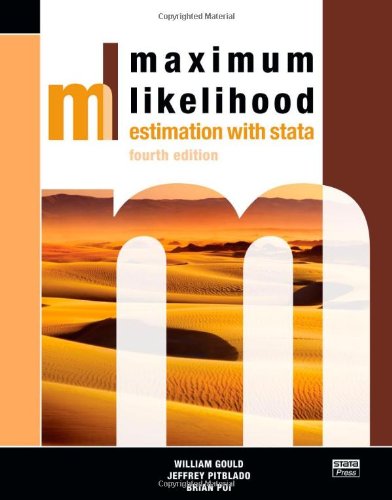

Most ebook files are in PDF format, so you can easily read them using various software such as Foxit Reader or directly on the Google Chrome browser.
Some ebook files are released by publishers in other formats such as .awz, .mobi, .epub, .fb2, etc. You may need to install specific software to read these formats on mobile/PC, such as Calibre.
Please read the tutorial at this link: https://ebookbell.com/faq
We offer FREE conversion to the popular formats you request; however, this may take some time. Therefore, right after payment, please email us, and we will try to provide the service as quickly as possible.
For some exceptional file formats or broken links (if any), please refrain from opening any disputes. Instead, email us first, and we will try to assist within a maximum of 6 hours.
EbookBell Team

4.0
36 reviewsMaximum Likelihood Estimation with Stata, Fourth Editionis written for researchers in all disciplines who need to compute maximum likelihood estimators that are not available as prepackaged routines. Readers are presumed to be familiar with Stata, but no special programming skills are assumed except in the last few chapters, which detail how to add a new estimation command to Stata. The book begins with an introduction to the theory of maximum likelihood estimation with particular attention on the practical implications for applied work. Individual chapters then describe in detail each of the four types of likelihood evaluator programs and provide numerous examples, such as logit and probit regression, Weibull regression, random-effects linear regression, and the Cox proportional hazards model. Later chapters and appendixes provide additional details about the ml command, provide checklists to follow when writing evaluators, and show how to write your own estimation commands.